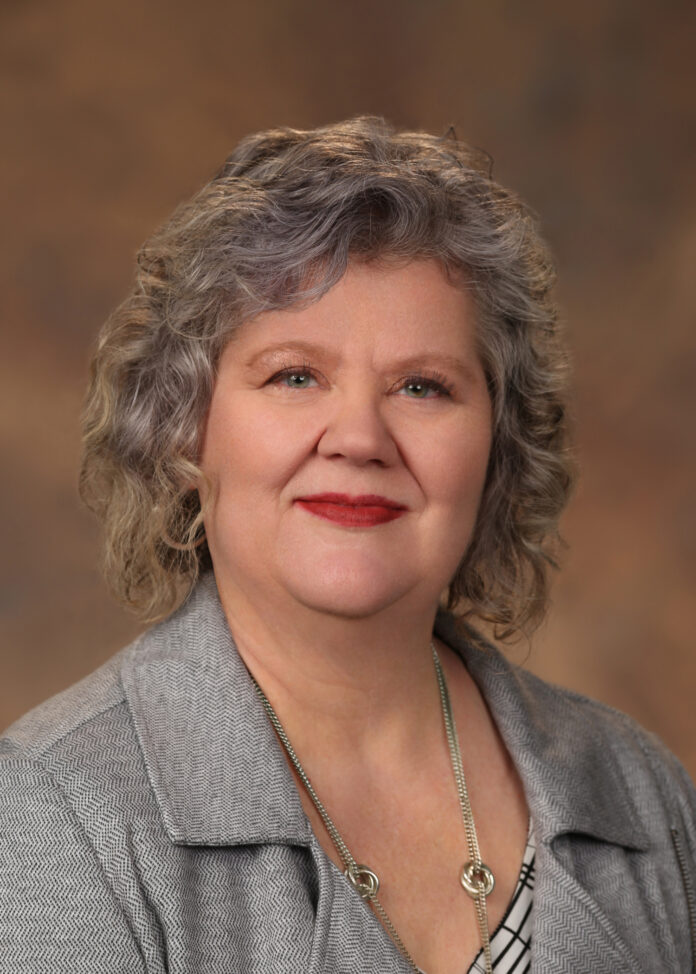
By Carol A. Cates, MSN, MBA, RN
Chief Nursing Officer
Odessa Regional Medical Center
One of my favorite places in the world is Yellowstone National Park. Because it’s so close to where my dad was born and raised and where most if my extended family still live, I have been to that park many, many times. My favorite natural wonder at that park is not stuff most people think of like Old Faithful, or the Yellowstone Falls, it’s the paint pots.
Ever since I was a little girl, I have been fascinated by the bubbling multicolored “paint” coming out of holes in the ground. I remember when scientists discovered all those colors didn’t come from minerals as they originally thought, but from a group of bacteria called “extremophiles.”
Extremophiles are bacteria and other organisms that thrive where we thought it was impossible for anything to live. Since then, we have found extremophiles in the most hostile environments you can imagine, inside volcanos, at the deepest depths of the ocean, in all sorts of toxins, in environments that contain very strong acids and bases, there are even extremophiles that are capable of living in space! The discovery of extremophiles has taught us that microorganisms are amazingly adaptable, and very, very good at surviving.
Part of that adaptability and ability to survive applies to how microorganisms interact with us. In the last few years, scientists have discovered a great deal about how the bacteria we barely even knew about 150 years ago are crucial to our survival as human beings. The relationship between our bodies and thousands of different microorganisms is a topic we are learning more about every day. The thousands of microorganisms we live with are collectively referred to as our microbiome. And like with any relationship, there are good things, bad things, and some in the middle things in our microbiome.
We have learned how “good” microorganisms support our immune system, digestive processes, and contribute to our overall health. Then there are the neutral ones. Bacteria we live with all the time, on our skin and in our body systems, that don’t do much to help us or hurt us. The obvious bad ones are the ones that cause disease, like COVID, flu, salmonella, and listeria just to name a few. Then there are ones we are just now learning about that seem to be doing things that I don’t think anyone really realized microorganisms are capable of.
In a recently published article, scientists have made a new discovery about a common bacteria found in our mouths. Fusobacterium nucleatum is a common oral bacterium and can cause gum disease and dental plaque. Recently, however, scientists found two subspecies of that bacteria in the colon. Those subspecies seem to have a strong link to colon cancer. Those scientists looked at 200 colon-cancer tumors for bacteria and also looked at 1200 stool samples. Half of the stool samples came from people with colon cancer and the other half came from people without colon cancer. The fusobacterium nucleatum subspecies were found in 50% of the tumors and stool of colon cancer patients. Adding to the interest in these bacteria and colon cancer, one of those subspecies may even interact with colon cancer tumors in a way that contributes to treatment resistance.
Colon cancer is the second-leading cause of cancer death. An estimated 53,000 people in the U.S. will die from colon cancer in 2024. Colon cancer rates are increasing in young people. Between 1995 and 2019 the colon cancer rates in people under age 55 has nearly doubled. The researchers are very quick to say that more research is needed before we link that increase in young people to the new discoveries about the bacteria, but it is certainly something that will be looked at carefully in upcoming research.
My first thought when I read this article was about another bacteria, an extremophile that has been heavily linked to gastric ulcers, H. pylori. When that bacterium was discovered, scientists were amazed that bacteria could even survive in the strong acids of the stomach. But with that discovery, we also learned if some is having ulcer symptoms to test for H. pylori and if they are positive to treat that infection because doing so helps treat and prevent gastric ulcers. I know since that discovery, I see far fewer gastric ulcers ending up in the ICU now than I saw as a young nurse.
That is my hope for where this research goes as well. As we learn more about the role of Fusobacterium nucleatum in colon cancer, we will be able to prevent and treat colon cancer much more successfully than we do now by adding antibiotics to the colon cancer treatment arsenal. We might even see a day where these bacteria become “good” bacteria. Because these bacteria interact with tumors, we may be able to make them tumor fighters by using genetic engineering to change them to cancer fighters.
So many things with microorganisms have changed since I was a kid, from the discovery of extremophiles to our understanding of our own microbiomes. Those organisms that are so good at survival and adaptability, are turning out to be a much stronger part of our own adaptability and survival than I think anyone could have imagined.



